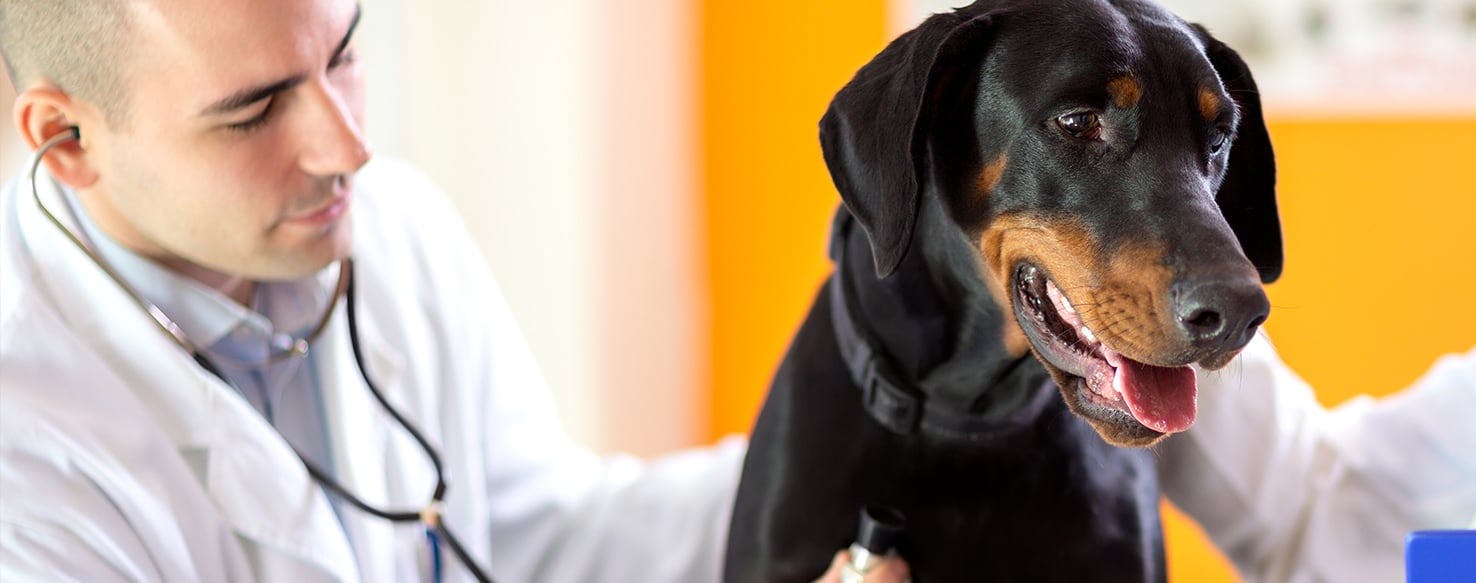When you have stomach pain or trouble passing waste, you may wonder if you ate something bad, but you don’t ask yourself, “Did I swallow a toy truck or a rock?” But if your dog seems to be having stomach pain and trouble passing waste, those might be valid questions.
“What in the World Did My Dog Eat?”
Some dogs really are like furry vacuum cleaners. If you have one of those dogs there is only so much you can do to keep your dog safe, but there are some simple things that can be done to lower the likelihood of a gastrointestinal foreign body in your dog.
- Keep your floor, patio, and yard clean and free from objects like bottle caps, small toy cars, action figures, etc.
- Keep your jewelry up high when you aren’t wearing it. After all, you might have been wearing that ring while you ate a roast beef sandwich earlier. Set it down on the coffee table and it might end up in Fido’s colon.
- Replace your dog’s toys when they are worn to pieces. Many dogs end up on the operating table not because they swallowed a dog toy, but because they swallowed the squeaker they got out of the middle of the dog toy.
Recognize the Symptoms of Gastrointestinal Foreign Bodies in Dogs
You’ve probably laughed at a scene in a movie in which a dog has swallowed an engagement ring or antique locket and one of the characters is impatiently waiting for the dog to pass the piece of jewelry into a pile of poop in the backyard. Sometimes, when your dog swallows something small, it does actually pass all the way through and you may know nothing about it. However, if your dog swallows something bigger, your dog’s life depends on you being able to detect the symptoms and take him to your veterinarian immediately.
Dehydration, lethargy, loss of appetite, diarrhea (with or without blood), abdominal swelling and/or tenderness, vomiting, persistent gagging that does not produce vomit, and inability to pass feces are all symptoms you can watch for in your dog. Dogs can also spike high fevers and go into shock as well. This is serious stuff, and your vet can only help your dog if you call or bring your dog in. Whatever you do, do not try to remove the foreign body on your own. You can seriously injure or even kill your dog by doing so. It’s best to get the vet involved as quickly as possible.
How a Vet Will Likely Help Your Dog
If you suspect that your dog has a gastrointestinal foreign body, if it is during office hours, call your vet immediately. You vet may tell you to bring your dog into your vet’s office or they may send you to an emergency veterinary hospital. If it is not during office hours, then you may need to take your dog to an after-hours veterinary emergency room. Your dog could be in a great deal of pain and your dog’s life may be in danger.
When you make it to a vet, the vet will listen to your observations, take your dog’s temperature, and examine the dog thoroughly. In order to definitely diagnose your dog with a gastrointestinal foreign body, your vet will likely take an x-ray and/or an ultrasound in order to identify what your dog swallowed and where it is. This will tell the vet how quickly intervention must take place and what the best method will be for removing the objective.
If the item is small and smooth, something like a pebble, and isn’t blocking your dog’s airway or otherwise causing too much pain, your vet may choose to see if the item will pass. If the item is stuck in the throat, stomach, or upper intestines, your vet may also attempt to remove it using an endoscope, which is a long, flexible scope that can be used to grab the object and pull it out. Like medical doctors, veterinarians don’t like to do surgery if it can be avoided. There are just too many risks involved with many surgeries for them to be the first choice of treatment. So, if it may pass or if an endoscope may work, they’ll probably choose these options. However, if the item is big, jagged, blocking the airway or the digestive tract, the vet will likely choose to perform surgery on your dog, cutting through the many layers of tissue to reach the object and remove it, then close your dog back up to heal.
Doing What is Best for Your Dog
The best way to help your dog is to prevent her from swallowing a foreign object in the first place. With some dogs, however, that is impossible. Even if you keep everything picked up off the floor, always have your jewelry up high, and replace their dog toys before they become dangerous, there’s nothing to say that your dog won’t swallow a giant acorn in the backyard. In that case, your dog’s life may depend on you being able to identify the symptoms of a gastrointestinal foreign body and get treatment for your dog immediately. With prompt treatment by a veterinarian, there is a very good chance that your dog, after she heals from removal of the object, will live a long and healthy life like the countless other dogs that have done the same thing and lived to tell the tale, or rather, lived to wag the tail.


